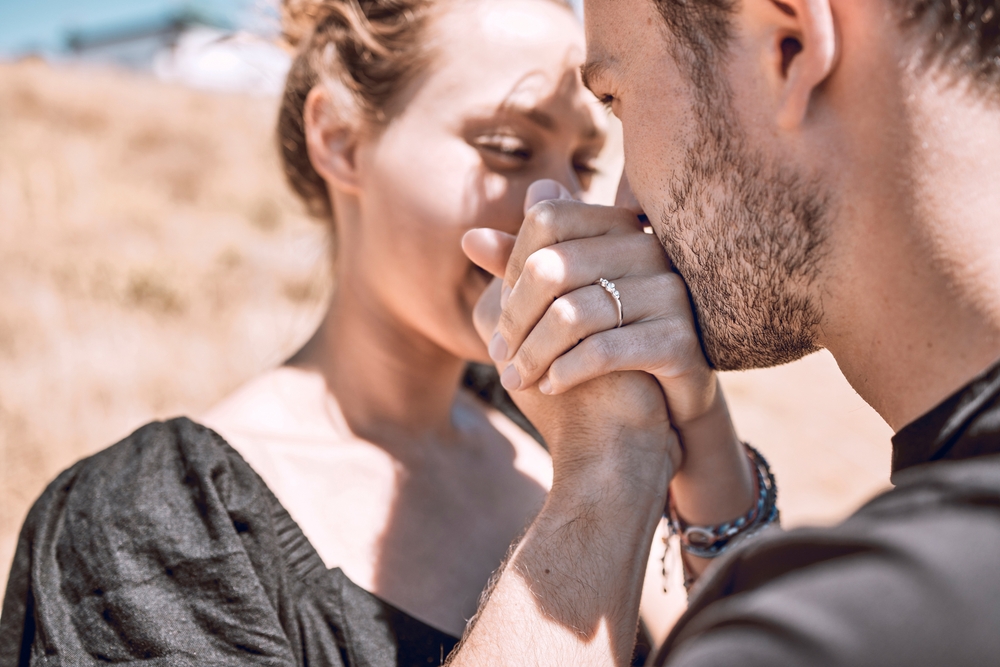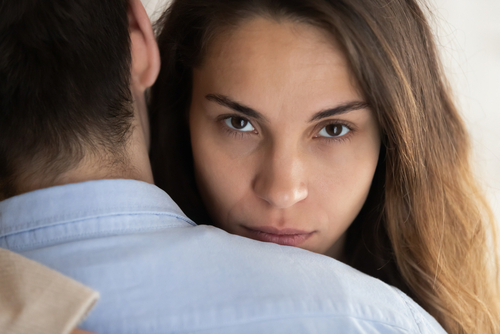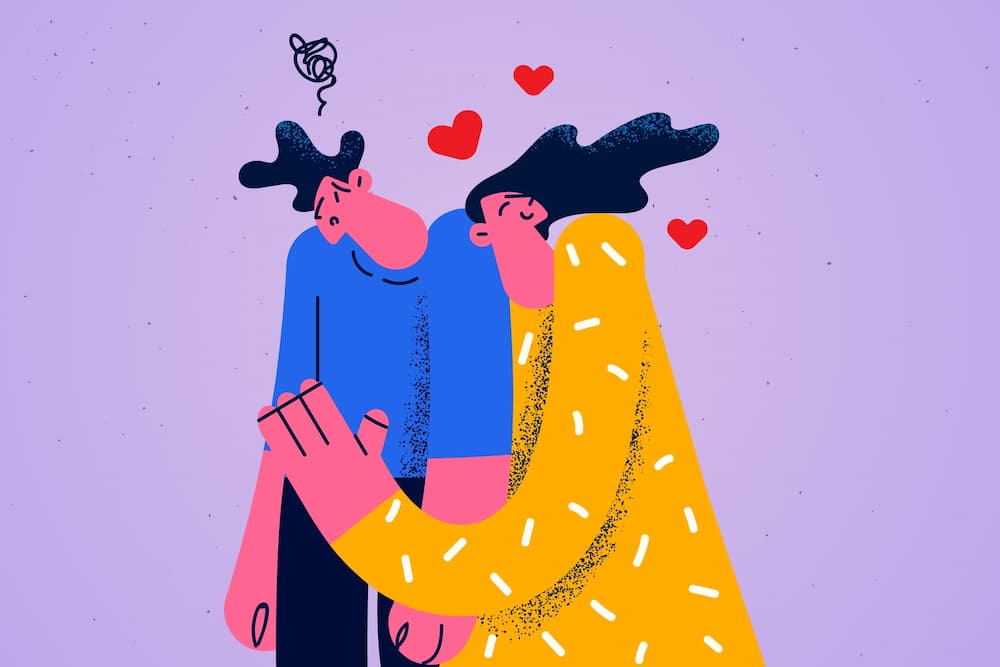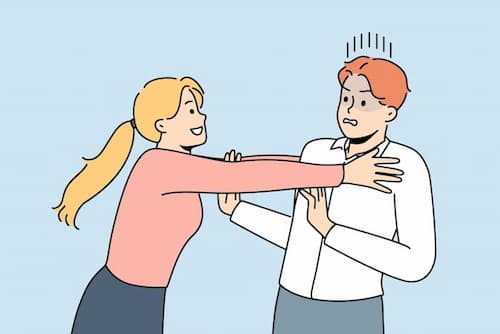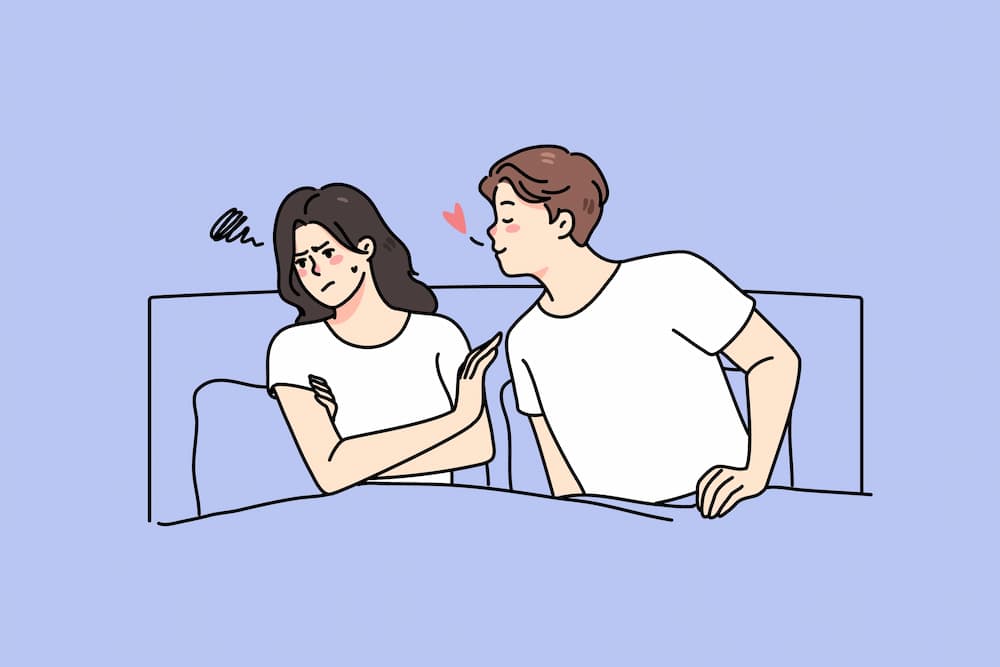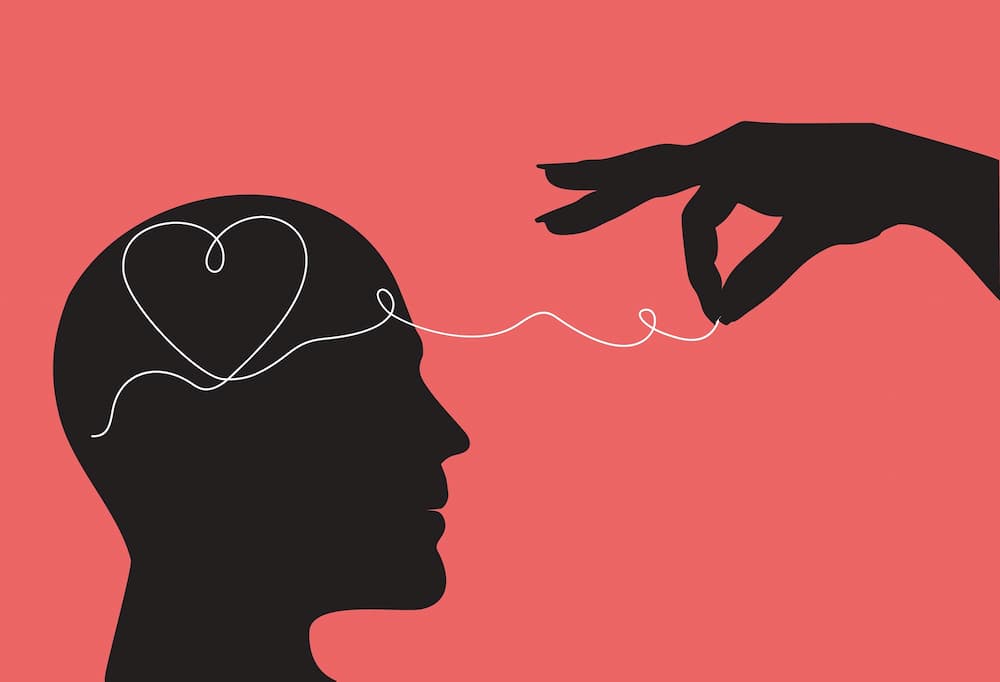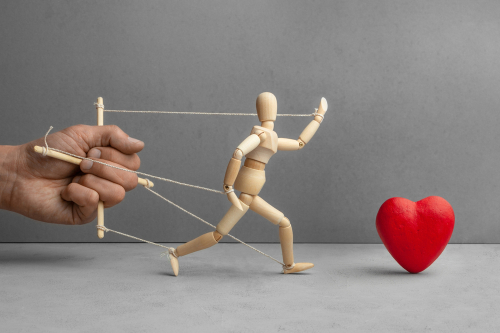Attachment theory (Bowlby and Ainsworth) seeks to understand and trace the root origins and the dynamics of interpersonal relationships. These attachment traits take place across various domains, encompassing friendships, parent-child bonds, and romantic connections. Through the interplay of personality traits, environmental, cultural and social influences, individuals tend to develop a dominant attachment style during childhood, which usually persists into adulthood. This style will go on shaping their interactions and connections with others.
Out of 4 types of attachment styles, the secure attachment psychology definition is considered to be the most adaptive, socially resilient, and generally the healthiest form of attachment. In contrast to the other 3 types, it’s not marked by high anxiety, ambivalence and avoidance, and is believed to have the attachment characteristics best suited for healthy relationships. This means that the person with the secure attachment style has a generally positive idea of one’s self and is able to choose, develop and maintain emotionally safe relationships.
Secure attachment in adults begins to develop during childhood if a child feels safe and is able to trust that their caregiver(s) will consistently meet their needs. Warm and responsive care from parents or caretakers creates an optimal environment for the child’s brain development, particularly in infancy.
The social and emotional center of the brain is the limbic system. This is the part of the brain that is developing. Attachment experiences impact this part of the brain in infancy and early childhood, and will go on to predict how the person experiences things like motivation, social awareness, stress responses and nurturing instincts.
Depending on how the child’s needs were met (or not met) during the crucial development of the limbic system, a person may grow up to be capable of secure, trusting and emotionally safe attachment, or other attachment styles like anxious, avoidant, or ambivalent.
What Is Freedom In A Relationship?
When we think about freedom in intimate relationships, most of us think of having space from our partner. What we really mean at Pivot is that we have relational freedom when we can hold our own interests and opinions, enjoy our own friends, and have appropriate independence to pursue our passions and goals. It means maintaining a sense of individuality while still having a strong and loving connection with our partner.
Secure attachment in relationships means that both partners, as securely attached individuals, respect and support each other’s individual autonomy and allow each other to be their authentic selves. Behaviors are not driven by needs to control, monitor or avoid each other. It’s based on mutual trust, open communication, and a willingness to give each other space and privacy when needed.
This is not to be mistaken for a lack of commitment, or a resistance to being “all in.” Quite the contrary, it is a way of enhancing commitment by encouraging two completely formed identities to come together and fully compliment each other. Think of it as 1 + 1 = 2, instead of .5 + .5 = 1. It emphasizes the importance of respecting and nurturing individual identities while fostering a strong and supportive connection with one’s partner.
What Are Examples Of Freedom In Relationships?
Traits of relational freedom may vary depending on the individuals, their unique preferences, and relationship dynamics they exhibit as securely attached adults. It is generally agreed upon, however, that relationships with secure people are based on a balance between togetherness and individuality. This allows both partners to thrive and maintain their sense of freedom and healthy self esteem, while still showing up authentically for the needs of the relationship..
Signs of secure attachment and relational freedom may look like:
- Each partner enjoys the freedom to pursue their own interests, hobbies, and personal growth. They can express their individuality and maintain their own identity within the relationship.
- Their relational behaviors are not motivated by a longing to cling together anxiously or a need to avoid emotional intimacy.
- Partners aren’t afraid to express their thoughts, feelings, and opinions. They can engage in honest and open conversations about their needs, desires, and concerns.
- Disagreements and differences of opinion are opportunities to create better understanding of each other. Disagreements are seen as a normal part of connecting two unique identities, and healthy problem-solving is crucial.
- Partners allow their partner to have the freedom to engage in activities or spend time with friends and family outside of the relationship without feeling restricted, controlled, manipulated, or thwarted by jealousy.
- Both partners participate in decision-making processes within the relationship. A healthy attachment means that mutual contribution is valued. Collaboration, cooperation and compromise are important, and each considers the other’s perspectives to create a secure base for their meaningful relationships.
- They establish and communicate their personal boundaries, and these boundaries are respected by their partner. The matter of consent is respected in all aspects of the relationship.
- Partners are relationally aligned with good, rational thinking, emotional intelligence and healthy, responsible actions.
- Partners allow themselves to be vulnerable and provide each other with support and understanding. Secure attachment and relational freedom normally come with a high degree of emotional intelligence, and psychological safety.
- Each partner supports and encourages the personal growth and self-development of the other. They celebrate each other’s achievements and offer support during challenging times.

What Is A Secure Attachment Style?
Secure attachment, according to the psychology definition, is a healthy and adaptive way of relating to others in relationships. People with a secure attachment style typically have a confident and grounded perspective on themselves, and a view of others that is based on a realistic assessment of trustworthiness and emotional safety. They’re comfortable with emotional intimacy, they trust and rely on their partners, and have a sense of security in relationships.
Although a secure attachment style initially develops through consistent and loving interactions with caregivers during childhood, it’s also possible to cultivate a more secure attachment style through self-awareness, personal growth, and healthy relationship patterns. This means that, even if your childhood circumstances or life events have left you with a default attachment style that may be anxious, ambivalent or avoidant, it is possible, with loving and dedicated repair, to move into secure attachment as a new, adaptive default style.
Some of the key characteristics of a secure attachment style are:
- Emotional Intelligence. Secure individuals understand, manage and express their own emotions effectively and empathize with their partner’s feelings.
- Trust and Reliability. They are able to trust their partner, and exhibit trustworthiness in their own behavior consistently over time.
- Independence and Interdependence. This means maintaining one’s autonomy while also valuing and fostering closeness in relationships.
- Effective Communication. Securely communicating means expressing one’s needs, desires, and concerns. Secure individuals are active listeners and respond constructively to their partner’s communication.
- Healthy Responding, not Reactivity. Secure partners manage their emotions in a healthy manner without defaulting to knee-jerk big emotional explosions, or shutting down and detaching. They are able to self-soothe or ask for support and provide support for their partners.
- Resilience in conflict. Approaching conflict with a problem-solving mindset and not being afraid to address issues is a secure attachment characteristic. They conflict constructively and with an end-goal of creating better understanding and connection.
- Operating with boundaries. Secure attachers understand when boundaries are appropriate and with whom. They do not use boundaries to manipulate or control others, but to improve emotional safety and relational quality.
- A positive self-image and a positive view of others. Secure individuals believe in their own worth and have confidence in their ability to form and maintain healthy relationships.
How Do Secure Attachments Fall In Love?
A secure partner feels trusting and safe with their partner, and their partner’s presence and support are welcome additions to a full life. They balance giving and receiving within the relationship. Thanks to their secure attachment, they’re not relationally derailed by anxiety, fear, and doubt, and are fully present for their partner.
Secure attachers tend to gravitate toward partners that also embody some of the core characteristics of secure attachment. Trustworthy behavior, autonomy, a “want the relationship” as opposed to a “need to be in a relationship” perspective, a sense of core self-worth and confidence are all traits they may be drawn toward.
Secure attachment individuals can have successful relationships with people who have different attachment styles if both parties are committed to working on their differences and moving toward mutual security.
When they fall in love, they value secure connection and maintain a positive perception of their partner. Secure individuals in a relationship:
- Establish open and direct communication.
- Feel comfortable showing vulnerability by openly sharing emotions, experiences, and fears.
- Demonstrate warmth and empathy.
- Feel confident in expressing affection.
- Cultivate emotional closeness with their partner at an appropriate pace.
- Place trust in their partner and exhibit trustworthiness.
- Are able to have direct and important conversations, even when they are difficult
- Are compassionately sincere, not brutally honest
- Encourage their partner to pursue individual interests outside of the relationship.
- Respect their partner’s needs and boundaries.
How Do You Love Someone With A Secure Attachment?
A mutually secure relationship is not solely the responsibility of one partner. Both individuals play a role in cultivating a secure and loving relationship. Building a strong foundation of trust, communication, and mutual support can help form a deep and meaningful connection with someone who has a secure attachment style. Operating with emotional intelligence, rational thinking, healthy, responsible behaviors and good self-management are foundational.
If you’re wondering how to develop a secure attachment style and be in a relationship with someone with a secure attachment, do your best to:
- Encourage open and honest communication and actively listen to each other’s thoughts, feelings, and needs. Explore communication skills like validation and active listening.
- Create a safe space where both of you can express your emotions without judgment or fear. Foster intimacy through empathy, understanding, and sharing vulnerable moments.
- Encourage individual growth and interests outside the relationship. Allow your partner the freedom to be their authentic self and pursue their passions.
- Build a sense of security by being dependable, keeping commitments, and showing up for each other. Consistency is a key to relational security and trust.
- Focus on managing your own reactivity to the unknown – for example, not knowing exactly where your partner is at all times, or feeling like investigative behaviors will soothe your anxiety.
- Be a source of validation for your partner. Celebrate their successes, provide a listening ear during challenging times, and offer encouragement to pursue their goals and dreams.
- In times of challenge, seek better understanding and come from a solution-minded perspective. Avoid criticism, blame, or harsh judgment. Create a spirit of constructive communication that is based in mutual respect.
- Practice self-awareness and personal growth. By working on your own emotional well-being and understanding your attachment style, you can contribute to a healthier and more fulfilling relationship.

PIVOT Can Help You Develop A Secure Attachment Style In Relationships
Developing a secure attachment style is a journey that takes time and effort. It’s essential to be patient and kind to yourself as you work towards creating healthier and more fulfilling relationships. If you don’t feel secure in relationships, our experienced relationship coaches can help you reflect on your early attachment experiences through individual sessions. Once you understand the origin story of your attachment style, you have much more agency over recognizing and interrupting unwanted attachment patterns in your here-and-now relationships.
We recognize that unraveling your attachment style may mean looking back at painful experiences in your childhood, or looking at how relational trauma may have shattered your sense of security. Our process can give you the support, stability, structure and encouragement you need to make the crucial shift into security.
You can do this in the serene environment of our Glass House retreat, working in small groups with individuals going through similar experiences., or one-on-one with a skilled relationship coach. We can help you get the kind of security, safety and trust you want in the relationships you choose. The support of our experienced coaches will guide you through the healing process and toward building a strong sense of self and a more secure attachment style.
